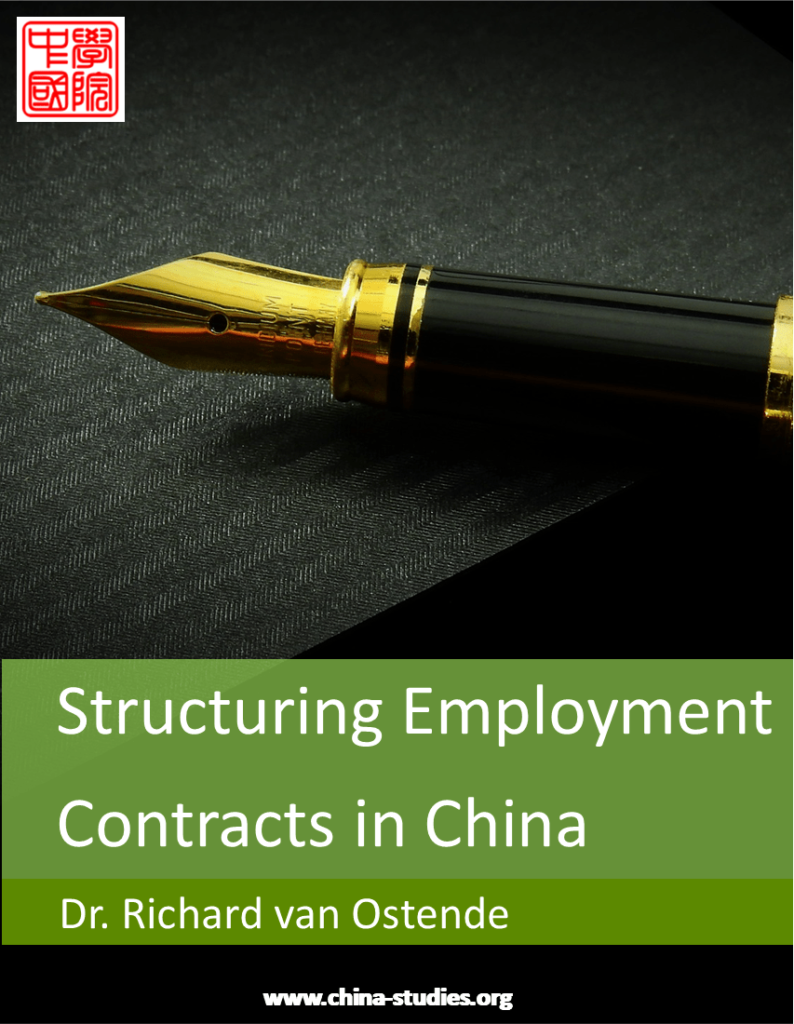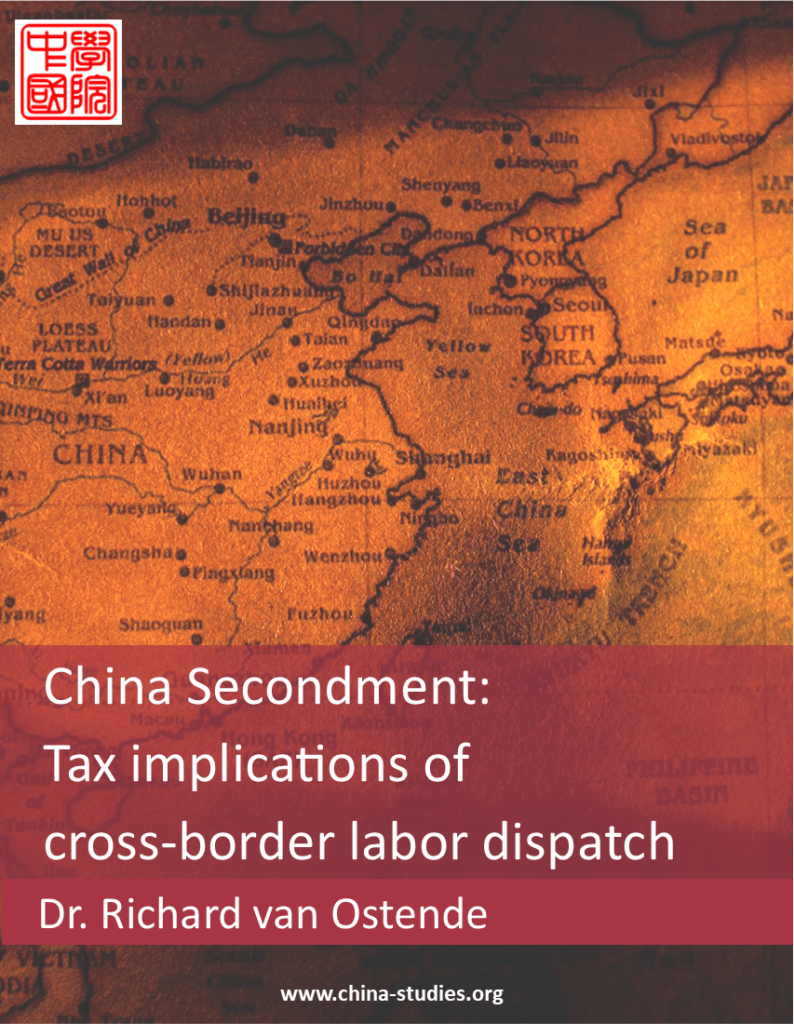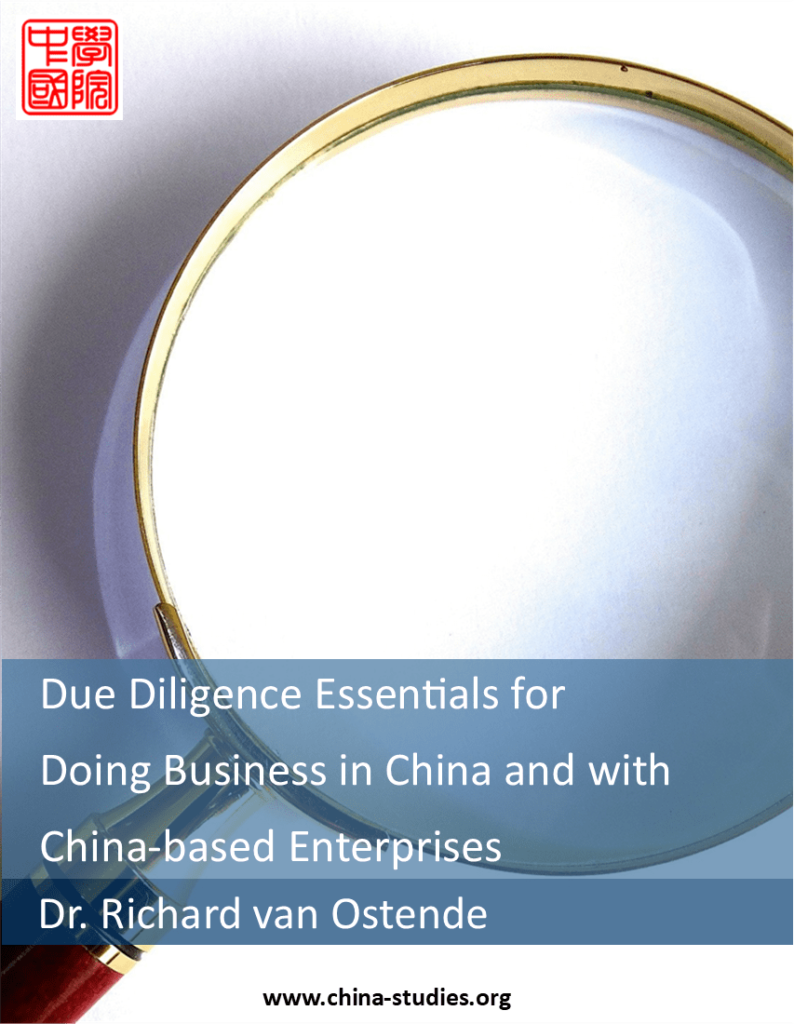
We frequently release new publications, including business guides and handbooks in which we focus on the latest developments in the fields of business and entrepreneurship, commerce and trade, foreign investment, legal, regulatory and compliance matters, corporate finance and tax, human resources, business analysis on macro-economic, industry and corporate levels, as well as sales and business development.
Below you will find a selection of the latest (e)book publications by our faculty and expert contributors.
Foreign Investment
Entering the Chinese Market via a Representation Office
The Representation Office is the most basic of Foreign Invested Enterprises (FIE’s) in form. The absence of capital requirements, a straightforward incorporation process in combination with a relatively short timeline and minimal requirements on overhead investments, makes Representation Offices an excellent means to test the market in terms of looking for Chinese suppliers, customers, for coordinating the foreign parent companies’ activities in China as well as for conducting market research required for developing a long-term strategy for China …
Accelerating Business Expansion in China via Branch Offices
Under China’s Foreign Investment Law and Company Law, organizations have multiple options to expand their business operations within China. When the expansion requires a formal presence in a new location, organizations have the possibility to enter these local markets via either the establishment of a new legal entity or via the establishment of a branch office. Companies consider branch offices as are a popular investment vehicle for fast expansion of their business operations throughout China. A formal representation will be established, in combination with comparable low incorporation requirements easy maintenance …
Introduction to Foreign Investment into China (2021 edition)
In recent years China has evaluated its existing foreign investment policies and developed and implemented a structured rule-based investment management system. Per 1 January 2020 China’s new Foreign Investment Law entered into effect, replacing the 1979 Law on Sino-Foreign Equity Joint Ventures, the 1986 Law on Wholly-Foreign-Owned Enterprises and the 1988 Law on Sino-Foreign Contractual Joint Ventures. The Foreign Investment Law combined with its detailed implementation regulations forms the basic law for foreign investment into China …
Human Resources
Payroll, Social Security, and Individual Income Tax in China
Personnel are an enterprise’ most valuable asset. Effective personnel management can strongly contribute to the continued success of an organization. China operates a mature framework of employment-related laws, regulations, and case law, of which entrepreneurs should have a profound knowledge. This publication aims to support existing and aspiring entrepreneurs with the knowledge required to develop and operate an effective personnel management within their organizations …
Structuring Employment Contracts in China
In China employment relationships are mainly governed by the PRC Labour Contract Law and its implementation regulations, in combination with further state-level, regional and local related rules and regulations. In this publication the different types of employment contracts related to individual, collective and parttime employment are introduced. In this publication the structuring of work placement arrangements between the hiring company, staffing firm and dispatched employee is discussed in detail, as well as restrictions applicable to work placement, remuneration and return of dispatched workers …
Managing Labor Disputes and Termination of Employment in China
China has developed and implemented laws and regulations for governing labor disputes arising between employer and employees. Disputes mainly revolve around individual and collective employment contracts as well as work placement contracts. In this publication the escalation trajectory from handling these disputes from consultation, mediation, and arbitration towards lawsuit at court is discussed in detail. Further attention goes out to the legal grounds for termination of employment contracts and calculation of severance payment …

Contracting Freelance Personnel in China
In this publication examples of main provisions which can be included in service contracts to be concluded with freelance personnel drafted in accordance with the PRC Contract Law, its detailed implementation regulations are provided. Each paragraph introduces a certain provision, which is substantiated by additional information on the purpose of the provision, the meaning and implication of its content, and further information on the background to place the provision in a broader context.
Financial Management
Profit Repatriation via Dividend Payments from China
There are multiple ways for repatriating profits out of China. In this publication the most well-known and commonly applied repatriation method of dividend payments are discussed in detail. In this publication the preconditions that organizations must meet to be able to effect dividend payments are discussed, followed by the calculation of net dividends as well as the applicable payment procedure that has to be complied with. To support well informed business decisions the content of this publication is supported by detailed calculation examples, illustrations of process flows and checklists …
China Secondment: Tax Implications of Cross-border Labor Dispatch
Along with the development of China’s economy and effects of globalization, an increasing demand for skilled resources in China exists. As a direct result of this, multinational companies with entities in China have been identifying high potentials within their organizations to dispatch them on temporary secondment arrangements to China to assume key technical, management or other positions with the Chinese entity …
Risk Management
Due Diligence Essentials for Doing Business with China-Based Enterprises
International business is not without risk and careful selection of potential cooperation partners is imperative. This applies to China as well. The vast majority of enterprises located in China are legitimately established, doing business, and seeking to develop their business operations in an honest way, compliant with domestic and international laws, regulations, and ethical standards. Unfortunately, a few that are not. This publication discusses the essentials of desktop research based basic due diligence that should be performed at minimum when verifying the merit of a customer or supplier originating from mainland China …









